Jada Pinkett REVEALS how she Truly Feels About Tupac’s Death & Suspect Arrest...
Imagine a world where one of the most iconic hip-hop legends, Tupac Shakur, could finally see justice served. It's a revelation that's sending shockwaves through the entertainment world. Today, we dive deep into the surprising call for justice by none other than Jada Pinkett Smith herself, after a recent police arrest shook the foundations of a long-standing mystery. So, without further delay let’s begin.
Before we begin let’s review the life of Tupac Shakur,
Tupac's Early Life
In the heart of East Harlem, New York City, on June 16, 1971, a legend was born: Tupac Amaru Shakur. But what many don't know is that his childhood was steeped in the activism of his parents, who were deeply engaged with the Black Panther Party. How did this early exposure to social and political issues influence his later life?
As Tupac's family later moved to Baltimore, Maryland, he found himself attending the Baltimore School for the Arts. There, he honed his skills in acting, poetry, and dance. But what led him to make the journey from the East Coast to the West Coast? And how did this relocation set the stage for his meteoric rise in the world of entertainment?
Tupac's Rise to Fame
In the late 1980s, Tupac's rap journey commenced, and it didn't take long for him to rise as a prominent voice in hip-hop. But what catalyzed his emergence as one of the most influential figures in the genre by the early '90s?
In 1991, he boldly released his debut album, "2Pacalypse Now," fearlessly confronting themes like police brutality, racism, and social injustice. How did this daring and provocative release, which courted controversy, serve as the bedrock for his remarkable career? Continuing to evolve as an artist, Tupac's subsequent albums, including "Strictly 4 My N.I.G.G.A.Z." and "Me Against the World," seemed to further solidify his status as a rap icon.
Gangs in Tupac's Era
In the early 1990s, a never-before-seen surge in street gang activity swept across the West Coast of the United States. Amid this tumultuous era, Los Angeles stood out as a searing hotspot for gang-related dynamics. Here, dominant groups like the Bloods and Crips wielded considerable influence, shaping everything from daily life to the music scene. But why was Tupac, an iconic figure in hip-hop, entangled with the Bloods, recognized for their signature red attire and affiliations? The convergence of this explosive gang culture with the vibrant hip-hop scene raises compelling questions about Tupac's experiences, influences, and the hidden connections within the music industry that few were aware of.
Legal Troubles
Tupac's life journey was anything but ordinary, characterized by a string of legal entanglements that seemed to shadow him. With numerous arrests and charges, spanning from assault to weapons violations, his path was frequently punctuated by legal turmoil. However, one pivotal event in 1994 stands out - Tupac was subjected to a brutal shooting during a robbery at a New York City recording studio. What hidden elements and connections might have fueled this shocking incident, which Tupac believed was intricately linked to his ongoing feuds and affiliations?
Remarkably, despite the relentless challenges and dangers that surrounded him, Tupac's voice remained an enduring force in the music industry. How did he manage to maintain his influence and creative power amidst such turmoil and adversity?
The East Coast-West Coast Feud
The East Coast-West Coast hip-hop feud of the 1990s was shrouded in mystery and intrigue, marked by fierce rivalries and mounting tensions. Yet, it's crucial to delve deeper into the complexities of this feud, beyond the surface appearances. While gang affiliations did play a role, it's essential to acknowledge that the feud wasn't solely rooted in gang dynamics. What hidden factors and motivations were at play beneath the surface of this intense rivalry?
This feud was, in many ways, a battle for supremacy within the music industry, amplified by media sensationalism. Tupac's connection to the West Coast and The Notorious B.I.G.'s roots in the East Coast served as the combustible fuel for this feud.
Tupac's Tragic End
The fateful night of September 7, 1996, forever altered the course of hip-hop history. In the vibrant city of Las Vegas, Nevada, Tupac Shakur, just 25 years old, found himself at the center of a shocking and fatal drive-by shooting. Rushed to the hospital in a desperate bid to save his life, Tupac's battle with his injuries unfolded over the next six agonizing days.
But what was the hidden narrative behind this tragic event? What were the circumstances that led to Tupac Shakur's untimely demise, leaving fans and the music world in disbelief?
Now the biggest news is here, the suspect of the Tupac’s murder has been arrested.
In a surprising twist, a long-buried mystery has resurfaced. On a recent Friday, news broke via the Associated Press and ABC News that the Las Vegas Metropolitan Police Department had made a significant arrest in connection with the murder of Tupac Shakur, a rap legend whose life was tragically cut short. This arrest, occurring a staggering 27 years after the fatal incident on September 13, 1996, has sent shockwaves rippling through the music world and beyond.
What makes this development even more intriguing is that it comes nearly three decades after the crime. Duane "Keffe D" Davis, the arrested suspect, now faces a murder charge with a gang enhancement. The police department described him as the "on-ground, on-site commander" who allegedly "ordered the death" of Tupac Shakur. What hidden truths might be unveiled as this case unfolds, shedding light on a cold case that has mystified investigators and the public for almost 30 years?
Smith has spoken publicly many times about her close connection with Shakur — who she has said was her “best friend.”
The pair first met as students at Baltimore School of the Arts in Maryland. “It was the first day, and he came over to me and introduced himself,” Pinkett Smith once said in an interview. “Definitely from looking at him, wasn’t necessarily the type of cat that I would even like, deal with.”
“But as soon as he approached me, he was like a magnet,” she continued. “Once you paid attention to him he kind of sucked you in. And we hit it off from that moment on.”
Smith described Shakur as a “brother” and “father figure” to her. “The type of relationship we had…you only get that once in a lifetime…,” she emotionally added.
In a 2015 interview with Howard Stern, Smith also spoke about her friendship with Shakur.
“I’ve never in my life met a person like Pac. He had so much charisma,” she said of Shakur, the son of activist and Black Panther Afeni Shakur Davis.
Smith revealed that she and Shakur attempted to take their connection further at one point as they kissed — but they both felt that it didn't feel right. “Being older, I have more of an understanding of what that was between us,” Smith, who went on to marry Will Smith, continued.
When you have two young people that have very strong feelings, but there was no physical chemistry between us at all.”
The new development in the Shakur murder case comes after the investigation was reopened earlier this summer. On July 17, authorities executed a search warrant at a home in Henderson, Nev. connected to Davis.
Jada Pinkett Smith's recent statement on her Instagram Stories has ignited curiosity and intrigue. Her words, "Now I hope we can get some answers and have some closure," reveal a deep desire for clarity and resolution regarding the tragic death of her friend, Tupac Shakur. What answers might emerge as this long-puzzling case unfolds? How will this arrest impact the ongoing investigation? The quest for answers in a 27-year-old mystery is undeniably captivating.
-
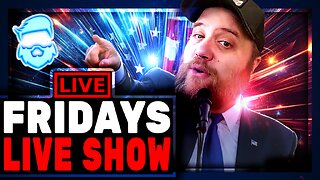 1:42:57
1:42:57
The Quartering
8 hours agoDonald Trump Conviction BACKFIRES, Massive Funds Raised, Democrats Swap Parties & More
44.6K61 -
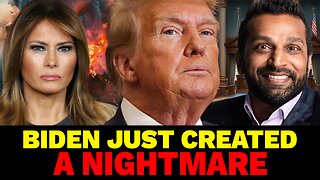 26:11
26:11
Stephen Gardner
6 hours ago🔴HUGE TRUMP WIN! Biden, Hillary, Obama ALL IN BIG TROUBLE NOW!!
45.3K348 -
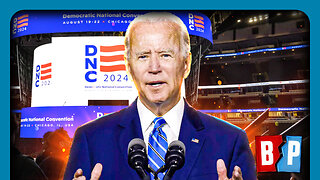 9:42
9:42
Breaking Points
1 day agoTERRIFIED Biden Moves DNC Online
45.7K77 -
 1:09:34
1:09:34
Edge of Wonder
6 hours agoGravity Isn’t Real? Fact Checking Terrence Howard
22.1K6 -
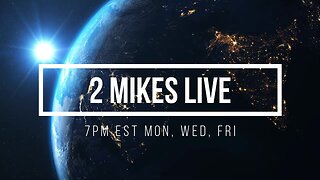 1:37:04
1:37:04
2 MIKES LIVE
8 hours ago2 Mikes Live #73 Open Mike Friday 5-31-24
23.3K5 -
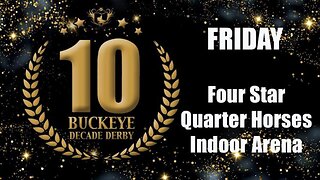 1:45:34
1:45:34
Total Horse Channel
1 day ago2024 Buckeye Reining Series | Friday Night | 7:30 pm EST
14.9K -
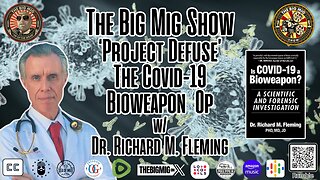 1:31:09
1:31:09
The Big Mig™
1 day agoProject Defuse, The Covid-19 Bioweapon Op w/ Dr. Richard M. Fleming
22.5K10 -
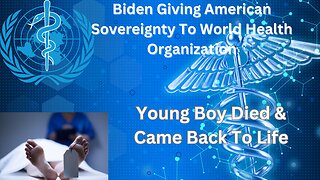 59:36
59:36
The Amber May Show
7 hours agoBiden Giving America Sovereignty To The World Health Organization | Young Boy Comes Back To Life | Dr Stella
15.9K -
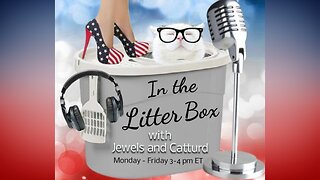 1:07:56
1:07:56
In The Litter Box w/ Jewels & Catturd
23 hours agoRogue Country | In the Litter Box w/ Jewels & Catturd - Ep. 577- 5/31/2024
87.4K73 -
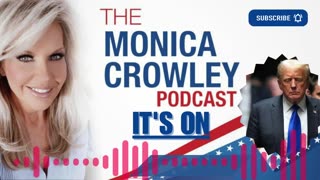 40:14
40:14
TheMonicaCrowleyPodcast
9 hours agoThe Monica Crowley Podcast: It’s On
25K11